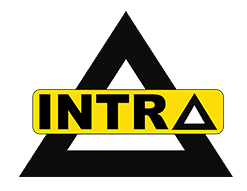34. Extracorporeal Membrane Oxygenation for Respiratory Failure: A Narrative Review
Extracorporeal Membrane Oxygenation for Respiratory Failure: A Narrative Review
CEUs: 2 Clinical
Average read time: 75 minutes.
Short Summary of the Article:
The article “Extracorporeal Membrane Oxygenation (ECMO) for Respiratory Failure: A Narrative Review” provides an in-depth analysis of the role of ECMO in treating patients with severe respiratory failure. ECMO has become a crucial life-saving intervention in cases of acute respiratory distress syndrome (ARDS) and other life-threatening respiratory conditions, particularly when conventional therapies like mechanical ventilation are insufficient. The review explores the physiological mechanisms of ECMO, the configurations of ECMO support (such as veno-venous and veno-arterial), patient selection criteria, ventilatory management strategies, and complications. The authors also discuss the future directions of ECMO therapy in critical care, emphasizing the need for continued research to optimize patient outcomes.
Learning Outcomes
Upon completion of this activity, you should have an understanding of:
- The physiological principles and various configurations of ECMO, including veno-venous (VV) and veno-arterial (VA) ECMO, and how they are applied in patients with different types of respiratory failure.
- The indications and contraindications for ECMO therapy, including the selection of patients based on their condition, such as ARDS or refractory hypoxemia, and when ECMO should or should not be considered.
- The management strategies for patients on ECMO, including ventilatory management, troubleshooting complications, and weaning protocols to safely discontinue ECMO support.
0 of 15 Questions completed Questions: You have already completed the quiz before. Hence you can not start it again.
Quiz is loading... You must sign in or sign up to start the quiz. You must first complete the following:
0 of 15 Questions answered correctly
Your time:
Time has elapsed
You have reached 0 of 0 point(s), (0)
Earned Point(s): 0 of 0, (0) What is the primary goal of ECMO therapy in ARDS? 4 Which ECMO configuration is most commonly used for respiratory failure? 3 True or False: The EOLIA trial showed no benefit of ECMO over conventional therapy in ARDS. 5 What is a major risk factor for mortality in ARDS patients undergoing ECMO? 3 What is the primary mechanism of oxygenation in the ECMO circuit? 4 What is a major complication associated with ECMO cannulation? 10 What is the function of the ECMO sweep gas? 8 Which patient condition is a contraindication for ECMO? 5 True or False: ECMO can only be used for respiratory failure. 3 What is a relative contraindication for ECMO use? 6 Which is a recommended parameter for ECMO weaning? 11 True or False: Mechanical ventilation is always required for patients on ECMO. 1 What is one potential solution for recirculation during ECMO? 10 Which type of cannula is used in VV-ECMO for drainage? 3 What is a common ventilator setting for patients on ECMO with ARDS? 6
Quiz Summary
Information
Results
Results
0 Essay(s) Pending (Possible Point(s): 0)
Categories
1. Question
Hint
2. Question
Hint
3. Question
Hint
4. Question
Hint
5. Question
Hint
6. Question
Hint
7. Question
Hint
8. Question
Hint
9. Question
Hint
10. Question
Hint
11. Question
Hint
12. Question
Hint
13. Question
Hint
14. Question
Hint
15. Question
Hint


